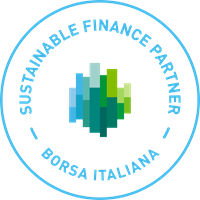Green Bonds, or green bonds, are financial instruments whose main purpose is to promote, through the use of financial resources, sustainability.
These are debt securities designed to support initiatives and projects that prioritize Environmental, Social, and Governance factors, such as renewable energy production, rational and responsible use of resources, and energy efficiency.
The types of interventions covered by green bonds can vary from sector to sector, such as transportation and logistics, infrastructure, construction, waste management, etc.
The first issue of a green bond was in 2007 by the European Investment Bank.
In Italy, Green Bonds made their debut in 2014 thanks to Hera, a multi-utility in Emilia, which launched a 10-year, €500 million bond.
In this content we delve into the concept of green bonds, with a focus on the sustainable financial investment market.
European and national regulations on green bonds
To understand what Green Bonds are and the entities that issue them, it is crucial to examine the regulatory framework, especially at the international level.
The International Capital Markets Association (ICMA) has pioneered the introduction of “Green Bond Principles,” defining a list of interventions that can be financed.
Subsequently, the European Union regulated the sector with its own guidelines through the development of standalone standards for green bonds in the EU.
This process was launched in 2018 with the European Action Plan for Financing Sustainable Growth, an integral part of the European Green Deal. A standard involving the creation of a list of authorized certifiers.
Only bodies approved by ESMA, the EU’s Financial Markets Authority, can provide a second opinion on funded projects.
This mechanism is a reaction of European law to possible greenwashing on Green Bonds, and thus a form of protection from false and misleading information about the sustainable initiatives that are the subject of Green Bonds.
In addition to the above-mentioned principle of the so-called second opinion, the European standard includes three other criteria, namely:
- Alignment of funds raised with European taxonomy regulations;
- Full transparency in the use of resources from Green Bonds;
- External evaluation to certify compliance with rules and rates of funded projects.
In Italy, Borsa Italiana has launched several initiatives to promote the adoption and dissemination of Green Bonds.
By participating in the United Nations Sustainable Stock Exchange Initiative and joining the Climate Bonds Initiative through London Stock Exchange, Borsa Italiana has amply demonstrated its commitment to fostering the transparency of Green Bond issuers regarding their ESG choices, providing investors with specific indices and analyses that could ensure transparency and truthfulness of information.
Sustainable finance instruments: the green bond market
There has been a significant evolution in the issuance of Green Bonds in recent years, parallel to the increased importance of ESG factors and environmental sustainability issues.
A key point of this transformation is the fact that, initially, international financial institutions such as the EIB or the World Bank were the main issuers of Green Bonds.
Over time, however, individual companies and business consortia have also begun to use such financial instruments to support their ecological transition, especially in developing countries and emerging economies, in order to achieve the UN’s Sustainable Development Goals contained in the 2030 Agenda.
In Italy, companies such as Enel, Cdp, Ferrovie dello Stato and Intesa Sanpaolo are among the most active in issuing Green Bonds.
A further sign of this development is the negotiation of the largest corporate Green Bond in Europe, issued by Enel Finance International and guaranteed by Enel Spa, with a total value of 1.25 billion euros and maturity set for September 16, 2024.
Since 2007, the Green Bond market has grown a lot, in 2021 surpassing USD 500 billion for the first time, marking a 75% increase over 2020.
Europe stood out as the region with the largest green bond issuance in 2020, accounting for 51 percent of the global volume.
Green Bonds represent an unprecedented investment opportunity because they provide an incentive for companies to operate according to ESG criteria.
In addition, the protection on the veracity of information guaranteed by European legislation on certification bodies make Green Bonds a protected instrument from the risk of greenwashing.
Sustainable engagement starts with your business
Valuing sustainable business choices focused on Environmental, Social and Governance criteria means looking at a way of doing business that is innovative and oriented toward future trends.
Investing in sustainability is not only a guarantee of social responsibility, but is a successful strategic choice for brands that wish to gain a competitive advantage in the marketplace, including the capital market and ESG investments.
It is for this reason that every day we choose to support companies interested in adopting a sustainable business model through advice, solutions and communication projects designed to enhance their efforts to improve their ESG profile while contributing to the well-being of people and the Planet. Revolutionize the way you do business with us.


